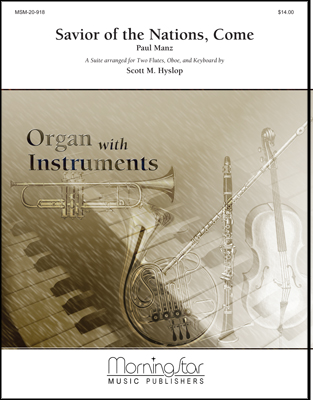- |
User Links
When Our Heads Are Bowed with Woe

When our heads [hearts] are bowed with woe, When our bitter tears overflow
Author: Henry Hart Milman (1827)Tune: ST. DUNSTAN (Redhead)
Published in 163 hymnals
Printable scores: PDF, MusicXMLAudio files: MIDI
Representative Text
1 When our heads are bowed with woe,
When our bitter tears o'erflow,
When we mourn the lost, the dear,
Jesu, Son of Mary, hear.
2 Thou our throbbing flesh hast worn,
Thou our mortal griefs hast borne,
Thou hast shed the human tear;
Jesu, Son of Mary, hear.
3 When the solemn death-bell tolls
For our own departing souls,
When our final doom is near,
Jesu, Son of Mary, hear.
4 Thou hast bowed the dying head,
Thou the blood of life hast shed,
Thou hast filled a mortal bier;
Jesu, Son of Mary, hear.
5 When the heart is sad within
With the thought of all its sin,
When the spirit shrinks with fear,
Jesu, Son of Mary, hear.
6 Thou the shame, the grief, hast known,
Though the sins were not Thine own;
Thou hast deigned their load to bear;
Jesu, Son of Mary, hear.
Hymnal: according to the use of the Protestant Episcopal Church in the United States of America, 1871
Author: Henry Hart Milman
 Milman, Henry Hart, D.D., the youngest son of Sir Francis Milman (who received his Baronetage as an eminent Court physician), was born Feb. 10th, 1791, and educated at Dr. Burney's at Greenwich, and subsequently at Eton. His career at B. N. C. Oxford, was brilliant. He took a first class in classics, and carried off the Newdigate, Latin Verse, Latin Essay, and English Essay. His Newdigate on the Apollo Belvedere, 1812, is styled by Dean Stanley "the most perfect of Oxford prize poems." His literary career for several years promised to be poetical. His tragedy Fazio was played at Covent Garden, Miss O'Neill acting Bianca. Samor was written in the year of his appointment to St. Mary's, Reading (1817); The Fall of Jerusalem (1820); Belshazzar… Go to person page >
Milman, Henry Hart, D.D., the youngest son of Sir Francis Milman (who received his Baronetage as an eminent Court physician), was born Feb. 10th, 1791, and educated at Dr. Burney's at Greenwich, and subsequently at Eton. His career at B. N. C. Oxford, was brilliant. He took a first class in classics, and carried off the Newdigate, Latin Verse, Latin Essay, and English Essay. His Newdigate on the Apollo Belvedere, 1812, is styled by Dean Stanley "the most perfect of Oxford prize poems." His literary career for several years promised to be poetical. His tragedy Fazio was played at Covent Garden, Miss O'Neill acting Bianca. Samor was written in the year of his appointment to St. Mary's, Reading (1817); The Fall of Jerusalem (1820); Belshazzar… Go to person page >Text Information
| First Line: | When our heads [hearts] are bowed with woe, When our bitter tears overflow |
| Title: | When Our Heads Are Bowed with Woe |
| Author: | Henry Hart Milman (1827) |
| Meter: | 7.7.7.7 |
| Language: | English |
| Copyright: | Public Domain |
Notes
When our heads are bowed with woe. H. H. Milman. [Litany in Lent. Burial.] Appeared in Bishop Heber's posthumous Hymns, &c, 1827, p. 114, in 6 stanzas of 3 lines, and the refrain, "Gracious Son of Mary, hear." It was appointed for the 16th Sunday after Trinity, and is based on the Gospel of that day, the raising of the widow's son at Nain, but deals only with the sad side of that event. Although it has become one of the most popular and widely used of Milman's hymns, yet it was not included by him in his Psalms and Hymns, 1837, nor in any subsequent edition. In Bickersteth's Christian Psalmody, enlarged edition, 1841, No. 122, the hymn begins with stanza v., "When the heart is sad within," and the text is rearranged thus, stanzas v., vi., i., ii., iii., and a new stanza. This last stanza is repeated in Bp. Bickersteth's Hymnal Companion , 1870. The refrain "Gracious Son of Mary, hear," has exercised the ingenuity of many editors of hymn-books. The following list of changes in that one line, although not complete, is yet sufficiently long to illustrate the difficulty of maintaining unity in these matters.
1. “Gracious Son of David, hear." Elliott. 1835.
2. “Jesus, Son of David, hear." Bickersteth. 1841.
3. “Son of Man, O Jesu, hear." English Hymnal. 1852.
4. “Jesu, Son of Mary, hear." Murray's Hymnal. 1852.
5. “Gracious Lord of Mercy, hear." T. Lowe's Hymns, 1854.
6. “Jesu, born of Woman, hear," Society for Promoting Christian Knowledge edition.
7. “Jesu, Man of Sorrows, hear." Alford. 1867.
8. “Jesu, Loving Saviour, hear." Windle. 1864.
9. “Gracious Saviour, hear." Scottish U. P. C. 1852.
10. “Gracious Son of David, hear." Harder. 1884.
The text of this hymn as in Hymns Ancient & Modern, 1861, has been translated into Latin by the Rev. C. B. Pearson in Biggs's annotated edition of Hymns Ancient & Modern, 1867, as "Tristes, orbos lacrymantes."
--John Julian, Dictionary of Hymnology (1907)


 My Starred Hymns
My Starred Hymns






